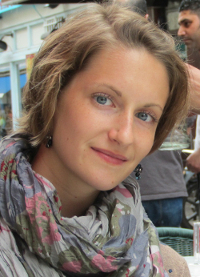Keynote speakers
 | Lea Frermann Institute for Language, Cognition and Computation School of Informatics, University of Edinburgh http://www.frermann.de/ |
| Modelling fine-grained Change in Word Meaning over centuries from Large Collections of Unstructured Text [Slides] The meaning of a word is strongly influenced by its context. Words have different senses, for example, the word 'mouse' may refer either to an animal or a computing device and the relevant meaning is activated by the context in which it occurs. In addition, mouse initially was only used in the rodent sense; the computer pointing device sense of mouse appeared only in 1965 according to the OED and has become particularly dominant in recent decades due to the ever increasing use of computer technology. Although the temporal context provides strong cues for the meaning meaning of a word current systems in natural language processing typically assume a fixed and established word sense inventory. In this talk I will describe an unsupervised Bayesian model of word meaning change over centuries. The model infers time-specific word representations as a set of senses and their prevalence from large collections of unstructured text. Unlike previous work, we explicitly model word meaning change as a smooth, gradual process, and experimentally demonstrate the benefit of this modelling decision. A series of qualitative and quantitative experiments demonstrate that our model performs competitively on meaning change detection tasks whilst inducing discernible word senses and their development over time. | |
 | Cédric Pruski Luxembourg Institute of Science and Technology http://santec.tudor.lu/team/pruski |
| Concept drift for ontology mapping and semantic annotation adaptation [Slides] As ontologies are now largely exploited in many different domains for many different purposes, their dynamics may have an important impact on the depending artefacts like mappings, semantic annotations or more generally speaking software application. It is therefore crucial to be able to deal with ontology evolution to minimise the mentioned impact. In this talk, I will discuss how concept drift has been approached in the framework of two research projects DynaMO and ELISA for the maintenance of ontology mappings and ontology-based semantic annotations in the health domain. | |